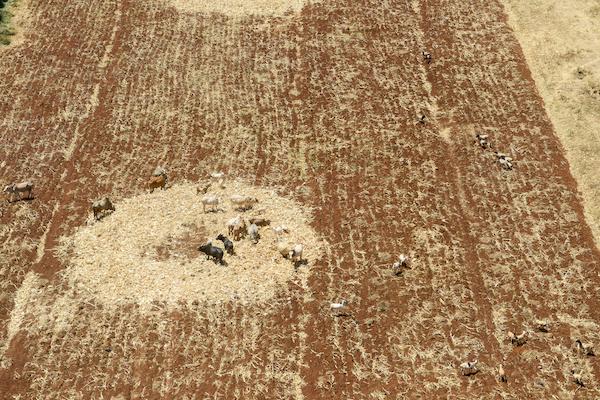For five consecutive years, the rains in East Africa have failed. This has led to one of the most devastating droughts in living memory and there is little sign the crisis will end any time soon: experts predict that, at best, the rains due in April and May will be below normal levels.
Any rain that does arrive is unlikely to be enough to undo the damage caused by the devastating drought. Livestock and crops have been decimated across the region, and famine looms for the people of East Africa.
Over 36 million people are suffering from hunger, and over 21 million require food assistance.
But this is a humanitarian crisis which could have been avoided. In 2011, when famine was last declared in Somalia, the UN said that the warning signs of famine must “never again be ignored”. Never again, we were promised, would people be left to starve to death. But the reality is that the very warning signs we were told would be acted on are being ignored once again.
In Kenya, in Somalia and in Ethiopia millions are facing starvation because of drought. Millions are being left to die and ignored, with no signs of the international community springing into action as they promised they would.
In fact, the UK government continues to turn its back, and is doing less and less each year even as more and more people face starvation in the region.
Last year, the UK gave just one-fifth of the aid provided to East Africa during the last hunger crisis in 2017-18. The action then helped prevent widespread famine and saved lives.
Humanitarian agencies like Cafod have been crying out for the UK to do more, and have provided evidence of the looming crisis. The warning signs are there and clear for all to see, but the government continues to do nothing.
Take Kenya as an example. The situation is particularly dire in Marsabit, a northern county which is the largest in the country. It’s mostly rural and the majority of people there rely on farming and livestock to make a living.
The local community is suffering because of the drought and they are bearing the brunt of the hunger crisis. One in ten people in Marsabit are classified at emergency levels of food insecurity, with over half at crisis levels.
Cafod and its local experts who are responding to the crisis in Marsabit are doing what they can, but most households have lost all their livestock and are left with almost nothing. Emergency food parcels and water are being delivered and boreholes are being dug to try and provide access to clean and safe water. But each day the need grows; people are losing hope.
Cafod has worked in Kenya for decades, but the situation is as severe as they have ever seen.
So what has the UK’s response been to this severe and ongoing humanitarian crisis in Kenya? To leave the people of Kenya high and dry, cutting funding just when they need us most.
The amount of aid provided to Kenya in 2021 is less than half than the UK provided in 2017, yet there is no indication that the government intends to reinstate this vital aid.
This is shameful and it is a betrayal of the promises the international community made to the people in East Africa, who were told they would never be ignored again. I, along with MPs and peers from across the Houses of Parliament, have written to Andrew Mitchell, the Minister for Development and Africa calling for the government to act before it’s too late.
The people in Kenya, Somalia and Ethiopia cannot afford to wait any longer for the food and water they so sorely need. Frankly, they need the government and the international community to deliver on its promises to never again ignore the warning signs of famine.
The government must scale up its response to this hunger crisis, because if it does not and continues to ignore the warning signs, the humanitarian crisis facing people in East Africa could be one of the worst we have ever seen.
Catherine McKinnell is the Labour MP for Newcastle upon Tyne North and is the Chair of the CAFOD All-Party Parliamentary Group.



 Loading ...
Loading ...
What do you think?
You can post as a subscriber user ...
User comments (0)